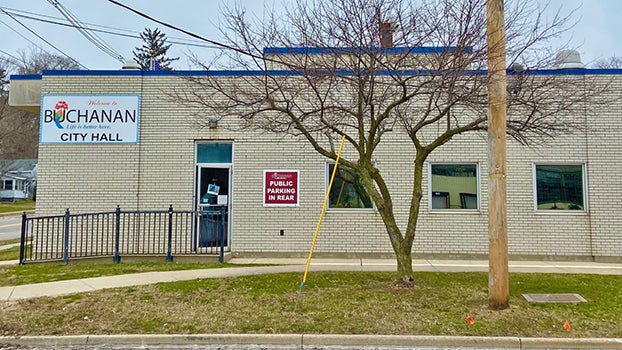Creative Foam, Premier growing here
Published 9:47 am Tuesday, December 8, 2009
By JOHN EBY
Dowagiac Daily News
Creative Foam, 55210 Rudy Road, moved 40 jobs back to Dowagiac and is looking to hire another eight to 10 employees in coming months, City Manager Kevin Anderson advised City Council Monday night.
The city received an application from Creative Foam to be considered for a tax abatement for new equipment that will be brought to the community.
In total, the company wants to invest an additional $600,944 in machinery, for which the council set a public hearing at its next meeting, 7 p.m. Jan. 11, 2010.
Council recently adopted a policy by which the amount of money invested, the total jobs created or retained, the local job component and the annual payroll would be taken into consideration when reviewing industrial facilities exemption applications.
Creative Foam’s IFT application scored a 9, making it eligible for a 12-year tax abatement.
Years 7-12 of the abatement require annual documentation that the original criteria continue to be met.
Anderson said this new investment will contribute approximately $2,420 in new taxes for Dowagiac and an additional $2,100 for other taxing entities.
“That’s really nice to hear some good news,” said Second Ward Councilman Bob Schuur, who made the motion.
“This other one is a bit of good news, too, I believe,” Mayor Donald D. Lyons said of Premier Tool and Die Cast relocating to Dowagiac this month.
Premier plans to locate a $4.2 million facility here, Gov. Jennifer Granholm announced in 2008.
The project was expected to create 62 jobs at the company over five years and an additional 46 spin-off jobs.
Based on the Michigan Economic Development Corp.’s (MEDC) recommendation, the Michigan Economic Growth Authority (MEGA) approved a state tax credit valued at $553,000 over seven years to win the company’s investment over a competing site in Jamestown, N.Y.
In 2008, Premier had hoped to move into Dowagiac quickly, hiring 19 workers the first year and 37 by the end of the following year.
Premier started in 1963 in Berrien Springs producing zinc and aluminum die castings for a small customer base.
The company grew to include three additional facilities in Michigan and one in New York and had 229 full-time employees in Michigan by the time of last year’s announcement.
A year ago the city offered short-term financing for the facility on Paul Street. That note recently came due and the administration has been working closely with Premier to facilitate its move to Dowagiac beginning Dec. 17.
Discussions resulted in a memo of understanding. Its terms:
• Premier owes the city $709,000.
• On Dec. 18, Premier will pay the city $150,000.
• On Dec. 1, 2010, Premier will begin monthly payments of $15,000 per month for the next 24 months, with a “balloon” at the end of the three years.
• Premier will also commit to use the proceeds from the state’s MEGA proceeds to pay off the promissory note when it receives that money from the state. This will speed up the repayment schedule.
• The promissory note to the city will continue to hold a first lien position as collateral on the building and real estate at 415 N. Paul at 7.5 percent.
• Any balance remaining on this note will be paid in full Dec. 1, 2012.
This financing package should meet a number of public policy objectives, according to Anderson.
First, it greatly reduces the amount of money city has in this project.
Second, repayment terms are reasonable. Third, Dowagiac reaps investment and jobs in the community.
With Premier moving equipment into the Dowagiac facility in December, Anderson said this will allow for personal property to become taxable within the city for the 2010 tax year.
In October 2008, the city approved a tax abatement for new equipment located at 415 N. Paul for Premier.
In November 2008, a promissory note was received from Premier when the city helped facilitate the purchase of the building at 415 N. Paul from ICG Corp.
Then national and international conditions impacted Premier’s plans.
“Much changed” with the global recession, Anderson noted.
Premier is now able to move forward with plans to relocate a portion of its business within Dowagiac.
“That’s another little spot of good news,” Lyons said.
“How do you rate our risk factor?” asked Third Ward Councilman Dr. Charles Burling.
“They’ve survived the last year,” the mayor replied. “That speaks well of them. A die-cast operation, their primary business had traditionally been the auto industry. They have reasonably well modified that. They have some business with Whirlpool and also some significant business with the furniture industry in Holland, the goal being roughly to have a third, a third, a third. Annual sales are about $50 million, so they’re a fairly reasonable-sized company. It’s a risk worth taking. They’ve paid down their line of credit to the bank by about $1 million over the last year, with hope for another couple of million by next summer.”
“Our risk factor is going to be $150,000 less after doing what we propose,” added City Attorney Mark Westrate.
There was even some positive news buried in year-end budget revisions.
Anderson explained, “When the budget was created for the previous fiscal year, it called for $60,000 deficit spending. After these amendments, we’re actually going to show a positive of somewhere around $90,000.”
“A $150,000 swing is compliments to the staff on their efforts,” the mayor said. “We budget conservatively, but I was quite tickled given the circumstances – but that’s not to mitigate the challenges of the upcoming year.”
Mayor Pro Tem Leon Laylin highlighted one area: “We improved on our efficiency with fuels,” posting a 21-percent consumption reduction. “That’s outstanding to achieve that in one year.”
“It’s so nice to look out here and see that crummy fire station gone,” remarked Second Ward Councilman Bob Schuur. “The new fire station,” accomplished Oct. 10 in the old highway garage on Wolf Street for $165,000, “is gorgeous. When we bought a new firetruck, we’d have to pay between $80,000 and $1000,000 to have it modified (to fit in the old station). Now we can go on the floor, buy the best and pay the right price. I wanted a fire station from the day I came on” the council 24 years ago.
“Now, if you’ll just get me a moviehouse I will be a happy camper,” Schuur added.
City pay scale adjusted 2 percent
Council adopted a resolution amending the city’s non-union classification and compensation system retroactive to the beginning of the fiscal year Oct. 1, 2009, for adoption of a 2-percent increase to all non-union salary ranges.
Individual employee salary adjustments will vary based upon year-end performance evaluations.
All adjustments will, however, be within specified salary ranges.
Effective Jan. 1, volunteer firefighters become paid part-time, on-call city employees.
“As such, we need to develop a comp and class system for them,” Anderson said. “Basically, it establishes pay for training and for responding to calls, replacing the point system that’s currently out there. Firefighters have reviewed this.”
City manager’s
contract adjusted
With his annual performance review completed, the council addressed its employment agreement with City Manager Kevin Anderson, entered into prior to him beginning employment in August 2008.
The following adjustments are proposed: increase his car allowance $30 from $585 per month to $615 per month; increase the retirement contribution by $1,000 annually; restructure the life insurance payout from 50 percent payout to city manager’s dependents to 75 percent payout to his dependents; when dependent coverage for medical ends next summer with his son’s college graduation, the amount of the premium will be added to his $125,000 salary.
The total additional cost of this agreement is $1,360, according to Mayor Lyons. These changes are effective Jan. 1, 2010.
Assessor made
a city employee
Several months ago, the Michigan Township Association’s attorney determined that assessors must be an employee of the municipality in which they work.
This only applies for certain specific statutory tasks that they must perform.
The Michigan Municipal League and various municipality attorneys reviewed and agree with this ruling.
An agreement the council approved Monday night modifies the current contract with Edward VanderVries for assessment services to comply with this ruling.
The agreement for assessment services will be reduced by $1,200 per year and VanderVries will become an employee for $1,200 per year to perform specific tasks required to be performed by a direct employee of the city.






